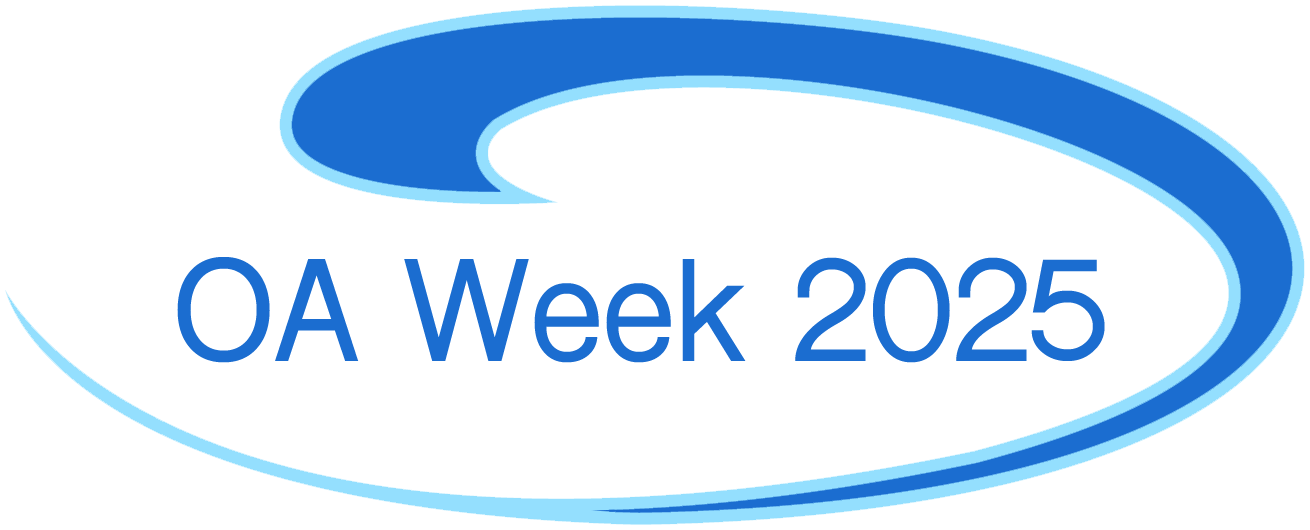
Ocean Acidification Week 2025
OA Week is a virtual multi-day forum highlighting ocean acidification knowledge from around the world. Stay tuned for more information about opportunities to get involved, session topics, speakers, and more!
Monday 13 October - Friday 17 October 2025
Goals
Rising to the challenge of ocean acidification: using science and knowledge to drive action
OA Week debuted in 2020, and returned in 2021, when events and conferences were postponed due to COVID-19. Following the successful in-person Symposium on the Ocean in a High CO2 World in 2022, GOA-ON brought back OA Week in 2023 to maintain momentum around OA research and provide a virtual platform for the ocean acidification community to exchange their latest findings. Since then, OA Week has been an annual GOA-ON tradition with an overarching goal of strengthening cross-regional connections and collaboration among the OA research community.
This virtual symposium will bring together researchers around the world with sessions, plenary speakers, and engaging discussions about ocean acidification research. If you have specific questions or suggestions, please contact us at secretariat@goa-on.org.
Image Credit: Kimberly Jeffries/ Ocean Image Bank
Schedule
13 October
ICONA Research: From Understanding and Predicting to Action
Monday
13 October 2025 at 7:00 UTC View in various time zones
The International CO2 Natural Analogues Network (ICONA) project aims at facilitating innovative research on the ecosystem-level effects of ocean acidification using natural analogues. This allows us to efficiently disseminate the findings that can underpin adaptive management strategies in order to mitigate the impacts of rapidly changing ocean conditions.
Additional speakers and titles to be confirmed.
Moderator(s)
Sylvain Agostini
Entropie, IRD, New Caledonia
Speakers
Britta Fiedler
PhD student University of the Ryukyus
Potential winners of ocean acidification: Benthic communities at a CO₂ vent in Papua New Guinea
Michael Izumiyama
Postdoctoral Researcher, University of the Ryukyus
Exploring volcanic CO₂ seeps to determine the genomic responses of fishes to ocean acidification
Marco Milazzo
University of Palermo
Arctic Hub
Monday
13 October 2025 at 9:00 UTC View in various time zones
The Arctic Hub session will present new insights into Arctic Ocean acidification on various aspects such as observations, case studies, biological effect studies, and modelling.
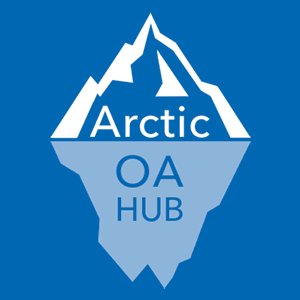
Moderator(s)
Agneta Fransson
Norwegian Polar Institute, Norway
Speakers
Yun Li
University of Delaware, USA
Beyond Long-Term Trend: Interannual Variability of Oceanic Carbon Uptake due to Sea Ice Loss in the Western Arctic Ocean
Sayaka Yasunaka
Tohoku University, Japan
CO2 uptake in the Arctic Ocean
Henry Henson
Aarhus University, Denmark
Glacial meltwater increases coastal carbon dioxide uptake and sensitivity to biogeochemical change
Ahra Mo
KOPRI, Korea
pCO2 variability in the Ice-Covered Arctic Ocean
North East Atlantic Hub
Monday
13 October 2025 at 13:00 UTC View in various time zones
Leading up to OSPAR's 2023 Quality Status Report the OSPAR Intersessional Correspondence Group on Ocean Acidification (ICG-OA) collaborated closely with the GOAN-ON North East Atlantic Hub to deliver OSPAR's Ocean Acidification assessment. This assessment was the first assessment covering Ocean Acidification in the entire North East Atlantic, featuring time series analyses, reconstruction synthesis products, future projections (regional models) of Ocean Acidification parameters and case studies of (biological) impact.
Since, ICG-OA has merged with the Climate Change Expert Group to form OSPAR's Working Group on a Changing Ocean Climate and Ocean Acidification (WG COCOA). WG COCOA is set out to deliver in 2029 a combined Climate Change and Ocean Acidification assessment, featuring updates of the 2023 Ocean Acidification products and similar assessment products for Climate Change variables.
During this session, the chairs of WG COCOA and some of the leads of working tracks within WG COCOA will present the plans and the state of the art of the 2029 assessment (with a focus on the Ocean Acidification angle). There will be plenty of room to interact with the audience to exchange ideas and suggestions: WG COCOA is always happy to, where possible, include the output (e.g. information on biological impact, future projections) of ongoing projects in the North East Atlantic in their assessments, provided they are delivered timely and the responsible researchers have time to interact and contribute during the production phase.
More speakers and titles to be confirmed.
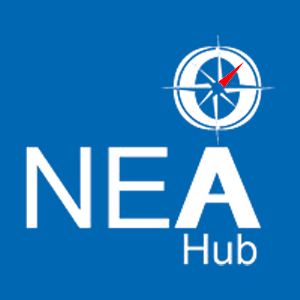
Moderator(s)
Jos Schilder
Rijkswaterstaat, Netherlands
Speakers
Helen Findlay
Plymouth Marine Laboratory
Yuri Artioli
Plymouth Marine Laboratory
14 October
Research in Emerging Regions - Community Discussion
Tuesday
14 October 2025 at 8:00 UTC View in various time zones
Ocean acidification experts from Egypt, South Africa, Namibia, the Pacific Islands, and Argentina share experiences in establishing and running monitoring programs in emerging regions. Panelists discuss institutional approaches to data collection, motivations for starting monitoring, and regional research priorities. Technical and logistical challenges, including sensor maintenance, sample transport, and access to resources, are highlighted alongside innovative solutions. Audience interaction encourages knowledge exchange and comparison of experiences. Key takeaways will provide practical insights for strengthening regional OA monitoring networks, improving data quality, and supporting global efforts to understand and respond to ocean acidification.
Moderator(s)
Paula Elaine Sacheus
University of Namibia and Kelp Forest Foundation
Speakers
Carla Florencia Berghoff
Instituto Nacional de Investigación y Desarrollo Pesquero (INIDEP)
Carla Edworthy
Nelson Mandela University, South Africa
Nayrah Shaltout
National Institute of Oceanography and Fisheries, Egypt
Secilia Shilongo
Ministry of Fisheries and Marine Resources, Namibia
Azaria Pickering
Pacific Community - SPC
Beyond Dissolving Shells: Innovative and Collaborative Ways To Improve OA Education
Tuesday
14 October 2025 at 13:00 UTC View in various time zones
We all know the classic outreach experiment of dissolving shells in vinegar to explain Ocean Acidification. This session aims to give a snapshot of what is happening around the world in OA education, sharing examples of innovative approaches, and better understanding the challenges and needs for OA education.
After short talks from our speakers, there will be a panel Q&A and discussion. Finally, we will invite you to engage with the session in an interactive audience experience.
Moderator(s)
Liz Perotti
NOAA Ocean Acidification Program
Speakers
Amy Kenworthy
Probleu
Making Ocean Acidification Relevant and Engaging for School Audiences
Alex Zimmerman
Indiana University
Game-based learning for ocean acidification: an open-source example using 'Ocean Protector'
Sam Dupont
University of Gothenburg & Ocean Acidification International Coordination Center
Beyond knowledge transfer - sensory experience and emotional connection as gateways to action to address ocean acidification
Jessie Turner
International Alliance to Combat Ocean Acidification
Art and OA Stripes: Making visible the unseen impact of carbon on our ocean
Paola Diaz
IOCARIBE-UNESCO
The Blue School Network: A Platform to Strengthen Ocean Literacy and Integrate OA Education
Francesca Santoro
IOC-UNESCO
Bridging Science and Society: Ocean Literacy for Collective Action
Paul Gómez-Canchong
COPAS Coastal
Relato as a Bridge: Storytelling Approaches to Ocean Acidification Education
OARS Framework for Action: An Introduction to Co-Designing Ocean Acidification Research for Decision Making Under the UN Decade of Ocean Science
Tuesday
14 October 2025 at 15:00 UTC View in various time zones
In order to encourage a diversity of OA actions across different scales, OARS has developed a framework for co-designing OA Information for Action. The framework identifies categories that guide various user groups in navigating the best opportunities to harness linkages between climate-ocean change science and policy priorities.
Learn about the OARS Decision-Making Framework Working Group which will focus on opportunities to promote the Framework at key events and utilize, apply or improve the framework across relevant projects and case studies in 2026.
We'd love to have you join us!
Moderator(s)
Edith Mari
International Alliance to Combat Ocean Acidification (OA Alliance)
Speakers
Sam Dupont
University of Gothenburg
Punyasloke Bhadury
Indian Institute of Science Education and Research (IISER) Kolkata
Caribbean Hub
Tuesday
14 October 2025 at 17:00 UTC View in various time zones
The OA Caribbean Hub was established in 2023 following a Caribbean OA Needs Based Assessment Survey. The Global Ocean Acidification Observing Network (GOA-ON) has encouraged grass-roots formation of regional hubs to foster communities of practice for the efficient collection of comparable and geographically distributed data to assess ocean acidification and its effects, and to support adaptation tools such as model forecasts. Join us to learn about ocean acidification research and policy in the Caribbean!
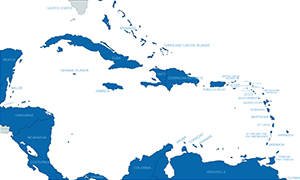
Moderator(s)
Dr. Debbie-Ann Gordon-Smith
The University of the West Indies, Mona, Jamaica
Speakers
Dr. Isaiah Bolden
Georgia Institute of Technology
Hidden Ecological Messages within the Chemical “Heartbeat” of Caribbean Reef Ecosystems
Dr. Natalia López Figueroa
Gulf Coastal Ocean Observing System (GCOOS)
Dr. Marko Tosic
IOCARIBE of IOC (UNESCO)
UN Ocean Decade and Ocean Policy in the Wider Caribbean
15 October
6th International Symposium on the Ocean in a High CO2 World Community Meeting
Wednesday
15 October 2025 at 7:00 UTC View in various time zones
The 6th International Symposium on the Ocean in a High CO2 World will be held in Te Whanganui-A-Tara Wellington, Aotearoa New Zealand, 12th-16th October 2026. In this session the organising committee seeks input from the international community to ensure the conference meets the needs of the participants. The session will be interactive, consisting of polls and breakout groups to determine session formats, topics, and what workshops, training, or ECR opportunities could be included.
Speakers
Dr. Christopher Cornwall (Local Organising Committee Chair)
Victoria University of Wellington | Te Herenga Waka
Dr. Christina McGraw (Local Organising Committee Deputy Co-Chair)
University of Otago
Dr. Rachel Hale (Local Organising Committee Deputy Co-chair)
Earth Sciences New Zealand
Dr. Sam Dupont (International Organising Committee
University of Gothenburg & Ocean Acidification International Coordination Center
Lina Hansson
International Atomic Energy Agency Ocean Acidification International Coordination Center
Progress in OA Research Across South and Southeast Asia
Wednesday
15 October 2025 at 11:00 UTC View in various time zones
In this session, recent developments including progresses made towards measurement of carbonate chemistry of coastal ocean representing South and Southeast Asia will be highlighted. Ongoing efforts towards assessing impacts of ocean acidification on coastal bioresources and recent progresses with the establishment of national OA monitoring programs will be also highlighted.
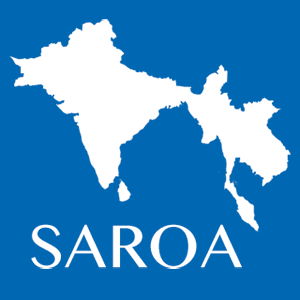
Moderator(s)
Amit Kumar, PhD
Sathyabama Institute of Science and Technology, India
Speakers
Amit Kumar, PhD
Sathyabama Institute of Science and Technology, India
P.H. Ashanka
Center for Marine Science and Technology, University of Sri Jayewardenepura, Sri Lanka
Brian Chew Bo En
UCSI University, Malaysia
Mentorship Perspectives: Strengthening Science Capacity Through Relationship Building
Wednesday
15 October 2025 at 13:30 UTC View in various time zones
Mentorship programs can support equitable capacity and career development across a spectrum of ocean professions. Personalized guidance from a mentor can help mentees build their professional networks, develop practical skills, and grow to be leaders in their field. In this session, we'll hear from program coordinators, mentors, and mentees, to discuss the role of mentorship in building a career in ocean science and industry.
Moderator(s)
Carly LaRoche
GOA-ON Secretariat
Speakers
Comfort Opoku
Department of Marine and Fisheries Sciences, University of Ghana | Pier2Peer Alumna
Dr. Sally Salaah
National Institute of Oceanography and Fisheries, Egypt | Women in Marine Science (WiMS) Womentoring Program
Meagan Gary
The Ocean Foundation
Dr. Luana Pinho
Rio de Janeiro State University
Co-development of Research
Wednesday
15 October 2025 at 15:00 UTC View in various time zones
This session will focus on co-development of ocean acidification research in different local and regional contexts. We will hear from researchers on the ground in Africa, Asia and North America. Speakers will discuss what co-development means to them and will cover best practices, as well as obstacles and challenges.
Moderator(s)
Erica Ombres
NOAA OAP
Alexandra Puritz
UCAR
Speakers
Jan Newton
University of Washington
Magak Adell
Global Coast Pilot Sites, Kenya
Punyasloke Bhadury
Indian Institute of Science Education and Research Kolkata, India
North American Hub
Wednesday
15 October 2025 at 18:00 UTC View in various time zones
The North American Hub is one of the earliest formed hubs within GOA-ON and it includes over 225 members from Canada, the US, and Mexico. The North American Hub has been integral to GOA-ON, with members serving not only within the hub, but also as GOA-ON Co-Chairs and Secretariat members. The theme of the 2025 GOA-ON OA week sessions is "Rising to the challenge of ocean acidification: using science and knowledge to drive action". This year's sessions will focus on new information on the OA science, knowledge mobilization and action from Canada, Mexico, and the US.
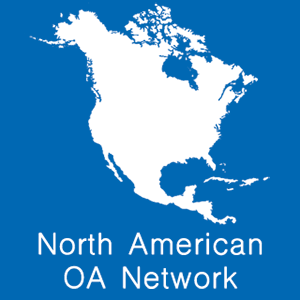
Moderator(s)
Dr. Helen Gurney-Smith
Fisheries and Oceans Canada
Speakers
Kristina Barclay
Canadian Ocean Acidification Community of Practice, Tula Foundation, Canada
The state of Canada's ocean acidification knowledge
Leticia Espinosa Carreon
Instituto Politécnico Nacional CIIDIR Sinaloa, Mexico
Advances in the understanding of the carbonate system in the Mexican Tropical Pacific
Kate Hewett
University of Washington, USA
Patterns in Corrosive Water Across the Washington and Oregon Shelf
16 October
Southern Ocean Carbon Through Time
Thursday
16 October 2025 at 10:00 UTC View in various time zones
The Southern Ocean plays a central role in global carbon cycling and is an important carbon sink. However, it also ranks amongst the most vulnerable oceanic region to acidification, with observations showing that open waters across the Southern Ocean have experienced faster rates of acidification over the past four decades than non-polar waters. Bringing together water chemistry, biology and paleo data, this webinar will explore and discuss the temporal patterns and pathways of carbon in the Southern Ocean across various time scales.

Moderator(s)
Katherina Petrou
University of Technology Sydney, Australia
Speakers
Dr. Elizabeth Shadwick
CSIRO, Tasmania, Australia
The Southern Ocean Time Series (SOTS): the emergence of trends in upper ocean biogeochemistry
Dr. Clara Manno
British Antarctic Survey, UK
From Shell to Sink: Seasonal Pteropod Dynamics and Their Role in Carbon Export in the Southern Ocean
Dr. Jessie Turner
Old Dominion University, VA, USA
Changing phenologies of chlorophyll and surface ocean carbon uptake in the West Antarctic Peninsula region of the Southern Ocean
Dr. Carles Pelejero
ICREA and Institut de Ciències del Mar, CSIC, Barcelona, Spain
Southern Ocean carbon rhythms: Glacial-Interglacial pH, CO₂ exchange, and calcifiers
OA Med Hub
Thursday
16 October 2025 at 13:00 UTC View in various time zones
The Mediterranean is a semi-enclosed and climate-vulnerable basin, where warming, acidification, deoxygenation, and biodiversity loss are unfolding at faster-than-global rates. The Ocean Acidification Mediterranean Hub (OA Med-Hub) will explore the growing climate-related pressures on the Mediterranean Sea, with a focus on ocean acidification in a multi-stressor context. Afterwards, ocean-based solutions, namely marine carbon dioxide removal (mCDR) approaches in the Mediterranean, will be navigated. Through a focused talk and panel discussion on climate threats, the session will highlight region-specific scientific evidence, knowledge gaps, and stakeholder perspectives. A second segment will introduce mCDR technologies, opening a space for a panel discussion on their applicability, risks, and governance needs in the Mediterranean context. The session aims to foster knowledge exchange and regional dialogue, contributing to OA literacy and coordinated responses to emerging climate solutions in one of the world's most impacted marine regions.
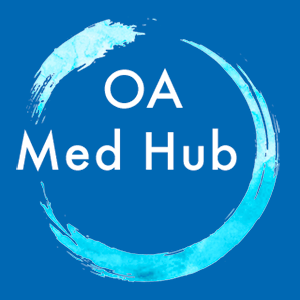
Moderator(s)
Abed El Rahman Hassoun
GEOMAR Helmholtz Centre for Ocean Research Kiel & National Council for Scientific Research in Lebanon (CNRS-L)
Iris Hendriks
Cientifico Titular of the Spanish Research Council (CSIC) & Mediterranean Institute for Advanced Studies (IMEDEA, CSIC-UIB)
Speakers
Patrizia Ziveri
Institute of Environmental Science and Technology (ICTA) Universitat Autònoma de Barcelona (UAB)
Nina Bednarsek
Jožef Stefan Institute, Slovenia
Marco Reale
National Institute of Oceanography and Applied Geophysics-OGS
Louis Hadjioannou
Cyprus Marine & Maritime Institute (CMMI)
Susana Flecha
Institute of Marine Sciences of Andalusia (ICMAN), Spanish National Research Council (CSIC)
Nathalie Hilmi
Centre Scientifique de Monaco
Cale Miller
Utrecht University, Netherlands
Nayrah Shaltout
National Institute of Oceanography and Fisheries, Egypt
mCDR: Impacts and Opportunities for Ocean Acidification
Thursday
16 October 2025 at 16:00 UTC View in various time zones
In addition to strong emission reductions, Carbon dioxide removal (CDR) strategies may become critical to avoid exceeding the temperature limits of the Paris Agreement. Robust and optimised monitoring is essential to enable reliable carbon accounting and guarantee the capacity to continuously and consistently detect the early emergence of CDR-related signals and potential side-effects. In this session we will hear from researchers across the world working to advance our knowledge on the potential opportunities and biogeochemical impacts of marine CDR, particularly concerning ocean acidification.
Moderator(s)
Ana C. Franco
Barcelona Supercomputing Center
Speakers
Brendan Carter
UW/CICOES
Monitoring and modeling for ocean alkalinity enhancement in the Pacific Northwest
Nina Bednaršek
Jožef Stefan Institute, Slovenia
The impact of OAE on marine calcifiers: biological effects assessment and mitigation potential on ocean acidification
Patrick Duke
Carbon Run
Lina Hansson
IAEA’s Ocean Acidification International Coordination Centre (OA-ICC)
Early capacity building efforts on the biological response of OAE
Hendrik Grosselindemann
Universität Bern
A Tribute to Dr. Richard Feely
Thursday
16 October 2025 at 18:00 UTC View in various time zones
As Dr Richard Feely takes his well-deserved retirement, GOA-ON and the ocean acidification community would like to take this opportunity to express our deep thanks and appreciation for all his work in raising awareness for ocean acidification and advancing this field of study, as well as his years of support, good advice, and friendship. Join us and some of the many researchers who have worked with him in a special tribute session to Dr Feely.
We will start the session with a brief history of Dr Feely's contributions to OA research and GOA-ON development, then hear from several researchers around the world about how he touched their work. We anticipate some limited time at the end for additional brief contributions from the audience.
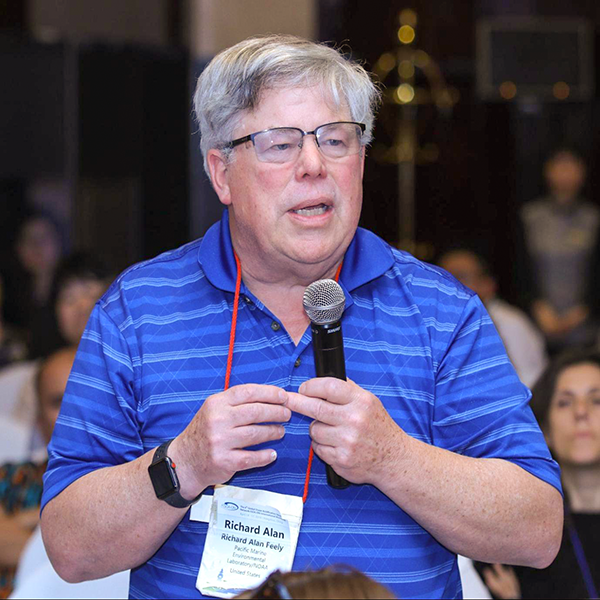
PI-TOA Session
Thursday
16 October 2025 at 21:00 UTC View in various time zones
The PI-TOA (Pacific Islands & Territories Ocean Acidification) Network works collectively to better understand and combat the impacts of ocean acidification in the region. As capacity for ocean acidification monitoring increases in the region, there is an increasing need for collaboration and communication among the various islands and territories.
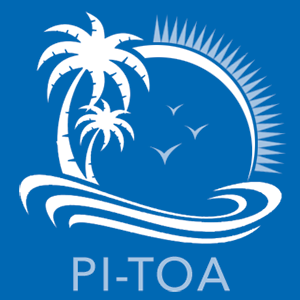
Speakers
Sebastiaan van de Velde
University of Otago
Anthropogenically stimulated carbonate dissolution in the global shelf seafloor is an important and fast climate feedback
Rachel Hale
Earth Sciences New Zealand
Future actions for the ocean acidification research community of the Pacific
Conference Local Organising Committee
Te Whanganui-a-Tara Wellington, Aotearoa New Zealand
The Ocean in a High CO2 World Symposium, 12-16th October 2026
17 October
International Carbon Ocean Network for Early Career (ICONEC) Community Meeting
Friday
17 October 2025 at 0:00 UTC View in various time zones
Are you an early career ocean professional looking for community within the OA world? Then the ICONEC community may be for you! Join us for an ICONEC Community Meeting during OA Week to learn about ICONEC's goals and activities and see how you can get involved in OA research as an early career. We'll also host Christina McGraw, a representative from The Ocean in a High CO2 World Planning Committee, to discuss the role of early career scientists at the upcoming 2026 International Symposium.
More speakers to be announced.
Speakers
Conference Local Organising Committee
Te Whanganui-a-Tara Wellington, Aotearoa New Zealand
The Ocean in a High CO2 World Symposium, 12-16th October 2026
Turning Science Into Policy: Advancing Ocean Acidification Action in Africa
Friday
17 October 2025 at 11:00 UTC View in various time zones
Organized by OA-Africa, this session will concentrate on "Turning Science into Policy: Advancing Ocean Acidification Action in Africa". It will showcase regional perspectives, explore the connections between science and policy, and create a platform for dialogue on how we can coordinate our responses to ocean acidification across Africa.
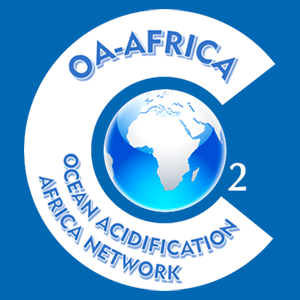
Moderator(s)
Sheck Sherif
United Methodist University, Liberia
Nayrah Shaltout
National Institute of Oceanography and Fisheries, Egypt
Roshan Ramessur
University of Mauritius, Mauritius
Speakers
George Rushingisha
Nairobi Convention
Frédéric Bonou
National University of Science Technologies Engineering and Mathematics (UNSTIM)/ Benin Institute of Fisheries and Oceanological Research
Joseph Charles
EPA Liberia
Samuel Koenig
United Methodist University, Liberia
Anthony Akpan
Pan African Vision for the Environment (PAVE), Nigeria
Marine Organism Response to Multiple Environmental Stressors
Friday
17 October 2025 at 13:00 UTC View in various time zones
Environmental stressors rarely occur in isolation, and as such, it is crucial to understand how multiple stressors interact in order to accurately predict and protect marine organisms under a changing climate. The goal of this session is to share knowledge on ongoing ocean acidification research across diverse marine organisms, with a focus on how additional environmental stressors shape their responses. We will explore the synergistic stressors facing marine organisms, and delve into specific marine organism responses to combined stressors
Speakers
Sally Salaah
National Institute of Oceanography and Fisheries, Egypt
Ocean Acidification and Emerging Pollutants: Synergistic Stressors Challenging Marine Organisms
Emma Pontes
University of Miami, Cooperative Institute for Marine and Atmospheric Studies
The physiological impact of ocean acidification and hypoxia on Orbicella faveolata
Dr. Doaa A. Kassem
National Institute of Oceanography and Fisheries, Egypt
The Impact of Ocean Acidification and Multiple Stressors on Microalgae and Macroalgae
LAOCA Session
Friday
17 October 2025 at 15:00 UTC View in various time zones
The Latin American and Caribbean (LAOCA) Network integrates the activities of the Latin American participants active in GOA-ON, representing the importance of the diversity of Latin American ecosystems, the richness of marine organisms in large coastal and oceanic regions vulnerable to the deleterious effects of increased carbon dioxide (CO2) absorption by oceans, and the social, economic, and political impacts of ocean acidification.
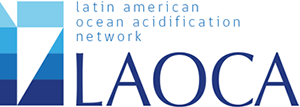
Moderator(s)
Cecilia Chapa Balcorta
Universidad del Mar, Oaxaca, México
Speakers
Valentina Amaral
Centro Universitario Regional Este, Universidad de la República, Uruguay
Carbonate chemistry variability in subtropical marine coastal lagoons
Natalia Rincón Diaz
Universidad del Magdalena, Colombia
Temporal dynamics of the carbonate system in a tropical rhodolith bed from a protected Caribbean bay
Luzmery Jiménez
Universidad Tecnológica de Panamá, Panamá
Carbonate system variability and its role in acidification and hypoxia in tropical mangroves and estuaries
Celeste Sanchez Noguera
Universidad de Costa Rica, Centro de Investigación en Ciencias del Mar y Limnología, Costa Rica
Environmental conditions and carbonate chemistry variability influencing coral reef composition along the Pacific coast of Costa Rica
Alejandro Preciado
Universidad de Zhejiang, China
Variabilidad espacio temporal anual de TA, DIC y OA (pH y pCO2) en el Parque Nacional Natural Gorgona, Pacífico tropical oriental de Colombia, bahía de Panamá, durante un fuerte episodio de La Niña
Technology Development in Ocean Acidification Research
Friday
17 October 2025 at 17:00 UTC View in various time zones
Ocean acidification research faces numerous challenges stemming from high spatiotemporal variability, subtle long-term trends, and complex species responses. Addressing these issues requires high-precision measurement of multiple carbonate parameters across space and time, coupled with high-replication assessments of biological sensitivities. Technical, financial, and logistical hurdles remain, but emerging technologies are helping to close these gaps. This session will highlight advances in sensor technologies, autonomous platforms for large-scale monitoring, and open-source experimental systems designed to enable high-replication acidification research. Collectively, these innovations are accelerating our ability to understand and respond to ocean acidification.
Moderator(s)
Molly Phillips
University of Southampton, United Kingdom
Speakers
Emily Hammermeister
University of Southampton, United Kingdom
A First of Its Kind: The Extended Autonomous Deployment of the Autosub Long Range with Dual pH Sensors
Allison Schaap
National Oceanography Centre, United Kingdom
Development and applications of a new autonomous total alkalinity sensor
Dr. Zhaohui Aleck Wang and Evan Lechner
Woods Hole Oceanographic Institution
Simultaneous In-Situ Measurements of Dissolved Inorganic Carbon and pH across Versatile Deployment Platforms
Yui Takeshita
Monterey Bay Aquarium Research Institute
Work towards a global ocean acidification monitoring network from the open to coastal ocean with profiling floats and gliders
Previous OA Weeks
Excited to dive in? You can view sessions from previous OA Weeks on the GOA-ON Youtube Channel.
Coordinators
The GOA-ON Secretariat is tremendously grateful for the support with the organisation of OA Week 2025. Our OA Week Coordinators, Magak Adel, Maisy Lus, and Molly Phillips, are assisting with session and speaker organisation. ICONEC Steering Committee member Natalie del Carmen Bravo Senmache is the OA Week Graphic Designer, creating the visuals for OA Week.
Meet our amazing OA Week Coordinators:
Magak Adell
Magak Adell is a marine geologist working on the Kenyan Coast Seascape currently serving as the lead partner in the Global Coast Pilot Sites, Kenya. An initiative under the Ocean Decade Program Coast Predict and lead by CMCC Foundation, Magak's area of research revolves around three primary impact areas:
Impact Area 1: Capacity in disaster risk reduction through real-time forecasting of extreme events including, but not limited to, sea level, marine heat waves, algal biomass blooms and oxygen at coastal scales and mCDR work. Impact Area 3: Prevention and mitigation of pollution impacts through pollution hazard/risk mapping and forecasting at coastal scales including, but not limited to, loss of biodiversity, human health, etc. Impact Area 7: Sustainable food production through coastal mariculture support system. His research work drives action by integrating science and knowledge towards the rising challenge of ocean acidification.
Maisy Lus
Maisy Lus is a MSc Applied Marine Science student at the University of Plymouth. Her work spans blue carbon ecosystems, ocean acidification, and nature-based coastal protection, with field experience in mangrove restoration and reef-island resilience. She is the founder of the Coastline Care Project in Papua New Guinea and serves as Executive Director for Fish Reef Project PNG, driving community-led marine conservation. Maisy is passionate about empowering coastal communities and fostering international collaboration to safeguard ocean health.
Molly Phillips
Molly Phillips is a final year PhD researcher from University of Southampton, UK. Her work involves the development and deployment of a novel autonomous total alkalinity sensor; a multidisciplinary mix of engineering and marine biogeochemistry. Molly is passionate about making marine research accessible to her community, and has created courses and festival exhibits to engage the public with ocean science.
Natalie del Carmen Bravo Senmache
Natalie del Carmen Bravo Senmache graduated in Biology, with a focus in Fisheries Biology, based at the Pedro Ruiz Gallo National University in Lambayeque, Peru. Her work has focused on the carbonate system in coastal areas and the impacts of acidification, and other stressors, on calcifying organisms. Additionally, she has used biology and ecology to inform the management of marine resources and search for adaptation and mitigation alternatives in response to climate change. In parallel to her academic work, she also dedicated herself to supporting initiatives to strengthen networks and capacities through her participation in International Carbon Ocean Network for Early Career (ICONEC), Research Network of Marine-Coastal Stressors in Latin America and the Caribbean (REMARCO), and the Peruvian Oceanography network and most recently as the representative of Peru/Ecuador and Early Career in Latin American Ocean Acidification Network (LAOCA) Executive Council.
